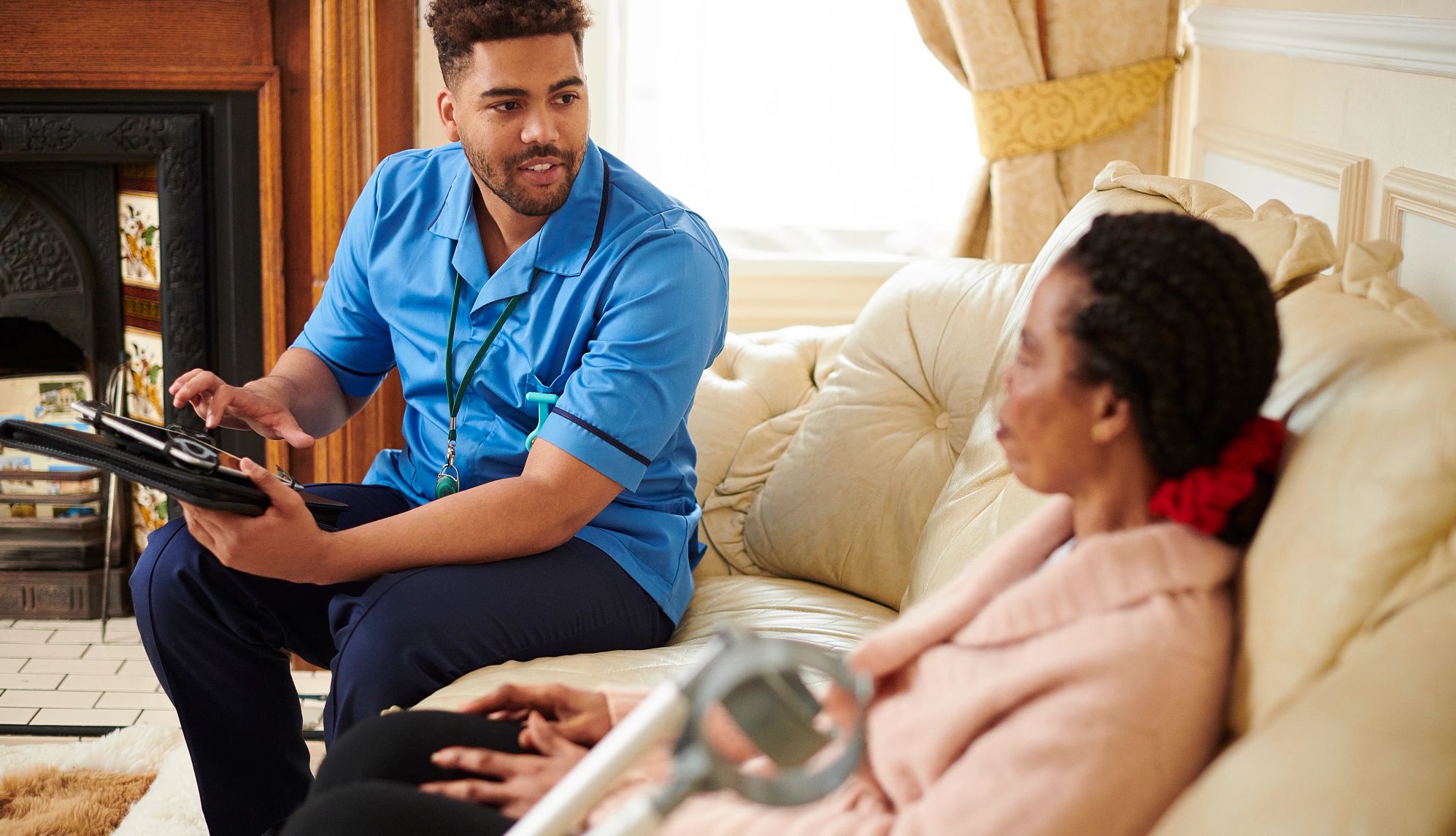AARP Hearing Center


Nursing facility residents in the District of Columbia should soon have better access to in-home care services, allowing them to live independently if they choose to, thanks to a new ruling in a class-action lawsuit that AARP Foundation has been working on for more than 15 years.
On August 15, a federal judge reaffirmed his previous ruling that D.C. failed to offer and help facilitate in-home care alternatives that nursing facility residents were entitled to. District officials had challenged that ruling. As a result, the court’s order stands, and District officials must move forward with reforms to ensure that nursing facility residents with disabilities who would prefer to live in the community are given real, systematic opportunities to do so.
AARP Foundation, which has represented hundreds of nursing facility residents as plaintiffs in the suit, applauded the judge’s ruling. “The federal court has ruled twice now that D.C. is violating the Americans with Disabilities Act by not providing essential information and assistance to people in nursing facilities,” said Kelly Bagby, AARP Foundation’s vice president of litigation.
“The implications for our clients are enormous,” Bagby added. “There are thousands of D.C. citizens who are waiting for the chance to live in their communities.”
Join Our Fight to Protect Older Americans
Here’s what you can do to help:
- Sign up to become an AARP activist for the latest news and alerts on issues you care about.
- Find out more about how we’re fighting for you every day in Congress and across the country.
- AARP is your fierce defender on the issues that matter to people 50-plus. Become a member or renew your membership today.
A long-running case
AARP Foundation, a charitable affiliate of AARP, filed the lawsuit in 2010, alleging that between 500 and 2,900 people with disabilities in D.C. whose care was paid for by Medicaid were unnecessarily institutionalized in nursing facilities. AARP Foundation argued that state and local governments must provide community-based services to people with disabilities whenever possible, as required by the Americans with Disabilities Act (ADA) and the U.S. Supreme Court’s 1999 landmark decision in Olmstead v. L.C.
After losing an initial trial in 2016, AARP Foundation successfully appealed, then went to trial again in 2021. During the second trial, one of the plaintiffs, an Army veteran named Larry McDonald, testified about living in a long-term care facility for 17 years and having no privacy or control over his daily life. He said he could cook for himself but needed help with other tasks, such as managing his medications and shopping for food. “I want my own place,” he told the court.




































































More From AARP
America’s Nursing Home Residents and the OBBBA
New moratoriums, funding cuts and eligibility restrictions for some of the nation’s most vulnerable
Relocating Nursing Home Residents Can Be Fatal. Is a Wave of ‘Transfer Trauma’ Coming?
20 patients in a rural facility were told to move out. More than half are now dead.AARP Supports Nursing Home Staffing Rules
Rule sets minimum care hours and requires 24/7 on-site registered nurse